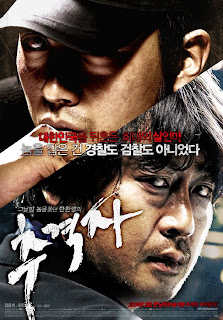 Confession: I watched this movie and thought it was unrelentingly, embarrassingly bad. It looked pretty good, it had that Shyamalan style, but too much of the dialog felt bullied onto the characters. I couldn't believe how unnatural it sounded, how forced and amateurish it felt for the purpose of filling in plot. And it's a message flick—"we've abused the planet so don't be surprised if it fights back some day"—and message flicks, in my experience, are the worst offenders in the bad movie department because the message, and trying to make the point, often get in the way of making a good film.
Confession: I watched this movie and thought it was unrelentingly, embarrassingly bad. It looked pretty good, it had that Shyamalan style, but too much of the dialog felt bullied onto the characters. I couldn't believe how unnatural it sounded, how forced and amateurish it felt for the purpose of filling in plot. And it's a message flick—"we've abused the planet so don't be surprised if it fights back some day"—and message flicks, in my experience, are the worst offenders in the bad movie department because the message, and trying to make the point, often get in the way of making a good film.Then I read a brief comment from a reviewer at the MRQE: "Shyamalan doesn't conform to the needs of modern movie goer zombies. It doesn't mean he sucks. It means you don't get it. At least someone still takes risks in the ART of cinema. It's not unintentionally hilarious. It's a blatantly comedic satire."
Whoa! That changes everything. Satire gives Shyamalan a free pass from ridiculous straight through to funny; except I'm not sure what he is satirizing. Himself? Message movies? Horror movies? Science? What? Doesn't satire involve an obvious subject in order for the satire to be got? I'm not going to hold the MRQE reviewer to his literal words because if The Happening is "blatantly comedic" I have lost my sense of humor completely. There is the part with the greenhouse guru—who pretty much solves the mystery of the Event by declaring that plants, because they can't run around and throw punches, develop neurotoxins to fight off threats to their existence—and his ironic enthusiasm for bringing hot dogs along on the getaway trip. That was funny. When he asks Mark Wahlberg and then Zooey Deschanel if they like hot dogs, they both respond negatively, but not so much as in "No, they give me the creeps", but more like "Not really, but more importantly your enthusiasm for them is giving me the willies."
Satire can also bring forgiveness to plot wonders and plot holes. One of the more uncomfortable moments in the film for me is when John Leguizamo decides to turn back and go into the dead zone to look for his wife. He is about to entrust his daughter's safety to Mark and Zooey but when Zooey reaches out to take his daughter's hand John barks at her: "Don't take my daughter's hand unless you mean it." On paper the line is in character, perhaps, but in performance it's way out of line. Are we supposed to laugh at the pain in Zooey's eyes as she reacts to this idiotic ungratefulness? I dunno. I don't get it. Shyamalan could very well be forging a new path, creating his own rules for satire, or deconstructing it and tossing aside certain aspects, like humor, for the sake of his art.
There's the famous bit of dialog from the movie trailer where Wahlberg confronts the getaway train conductor (or whatever he is) about why they can't get back on the train and keep going. The conductor says, "We've lost contact." Wahlberg asks, "With who?" and the conductor replies "Everyone." That seems pretty final until a few scenes later where a woman is talking on her cell phone to her daughter who's back in the infected zone. Mark walks up like Jack from the TV show Lost and offers instructions to pass along to the daughter of the hysterical woman who puts the call on speaker-phone so we can all hear her daughter die. Cut. There's the scene where someone whips out an iPhone and plays a high quality video that was just sent to them from someone in the infected zone. I'm not going to tell what the video shows, suffice to say it's blatantly comedic. As is the notion of running away from the wind but I'm not bringing that up.
I have an extremely high tolerance for the gravity of plot as it weighs on a story. I'm not deducting points for any failure to bear that burden; I'm deducting points because so many of the scenes are written badly. And the story is stupid. Yes, playing the satire card shines a new light on everything but I'm not sure it makes anything more attractive. I'm reminded of a Seinfeld episode where an elderly couple are admiring a giant portrait of Kramer and the guy says something to the effect of "It's obscene. I can't turn away." Honestly, that's how I feel about The Happening. It's so bad it has to be brilliant. But blatantly comedic? I'm not sure. Your mileage may vary.
★★











